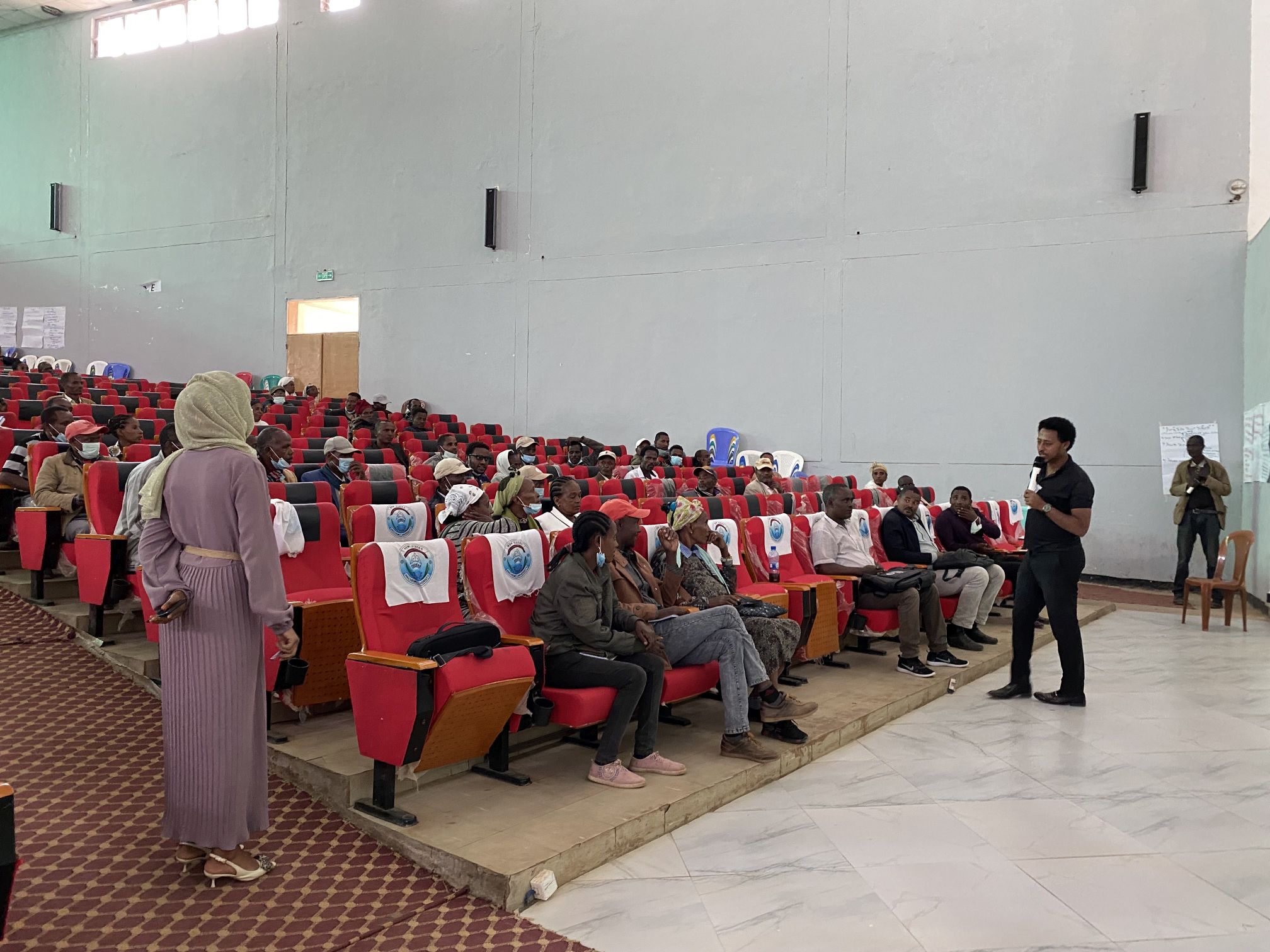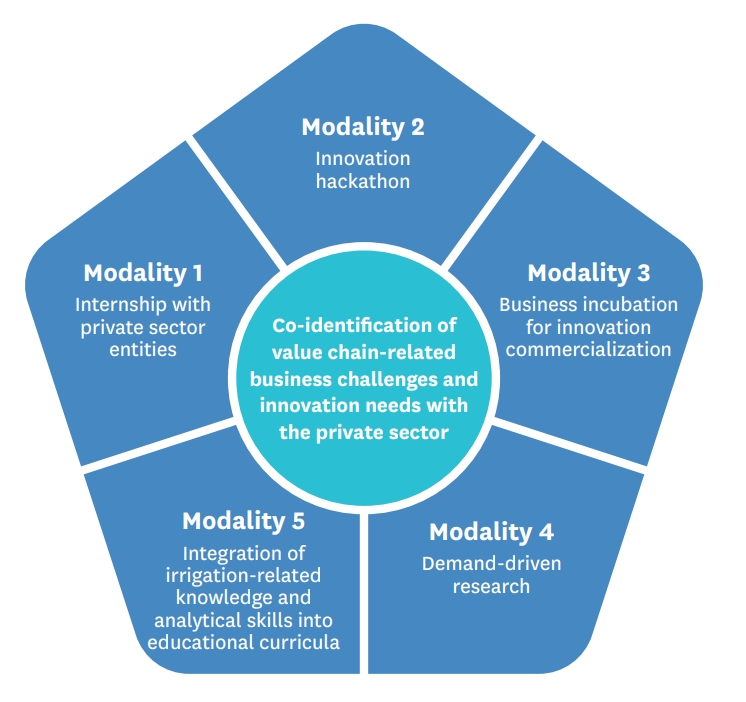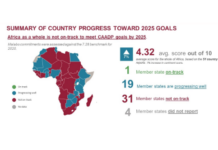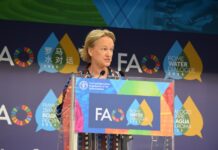How solar-based innovations are helping farmers in Africa become water and food secure
Agricultural productivity has increased and farmers are more water resilient thanks to innovative solar-based irrigation solutions.
As climate change threatens water and food security in many parts of Africa, governments are promoting small-scale, farmer-led irrigation as a crucial climate adaptation measure. At the same time, rising incomes and changing dietary patterns among middle-income consumers are making the production of high-value irrigated crops an attractive market opportunity for smallholder farmers. But a lack of an energy source to pump water as well as various social and economic constraints are preventing many smallholders from cashing in on this opportunity.
In Ghana, for example, most smallholders do not have access to a consistent supply of electricity. In many off-grid areas, petrol and diesel pumps are commonly used for irrigation. These pumps are expensive to run and contribute to carbon emissions. With the country’s abundance of sunshine and water resources, solar pumps offer smallholders an economically and environmentally sustainable alternative.
Solar-based irrigation setup in Gorogo, Upper East Region, Ghana. Photo: Hamish John Appleby / IWMI
Getting the right solar technologies to the right people is often complicated by weak supply chains, high costs and a poor understanding of local market needs. IWMI, supported by the Feed the Future Innovation Lab for Small-Scale Irrigation (ILSSI) and Africa Research in Sustainable Intensification for the Next Generation (Africa RISING) projects, has identified a bundle of innovative solutions with significant agricultural potential.
Best-fit innovation bundles
A key project objective is engaging private sector actors, who play a central role in the supply of solar irrigation technologies and services such as pumps, information, financing and after-sales support. The aim is to identify bundles of innovations that can be adapted to fit the local context and to scale these up to reach a large number of farmers. In 2020, the first scaling partnerships were established in Ghana and Ethiopia to accelerate progress towards this objective.
In Ghana, IWMI partners with Pumptech, a solar pump distributor that combines pumps with pay-as-you-own financing. This flexible financing model helps to address the challenge of high initial investment costs by allowing farmers to use the equipment while making small, regular payments. Once the total cost of the equipment is paid off, the pump is permanently unlocked and ownership is transferred to the farmer. The pump can also be temporarily locked remotely if a farmer misses a payment, thereby de-risking private companies’ investment in solar systems.
When I was using a petrol pump, I ran at a loss because of the high operating costs. With a solar pump my costs are low. I am saving the profit from the small pump to buy a bigger solar pump, and to cover family responsibilities like school fees. I am now able to irrigate my farm faster. Previously it took me three hours, but with the pump, it takes me 30 minutes.
Amadu Issaka, vegetable farmer in Gentiiga, Upper East Region, Ghana
Across Ghana’s drought-prone northern regions, IWMI and Pumptech organized a series of demand-supply linkage workshops. In total, the workshops brought together 2,601 value chain actors to discuss ways to establish strong distribution networks for Pumptech, using workshop participants as sales and service agents. Seventeen such networks have since been set up. During the workshops, participants also identified 862 potential customers for Pumptech’s PS2 pumps. These are compact and relatively affordable off-grid pumps that are specifically aimed at smallholders.
To handle the increased demand generated by the workshops, Pumptech opened a new branch office in the Upper East Region in mid-2021 with the Ministry of Food and Agriculture. In addition, Pumptech’s pay-as-you-own financing model attracted USD 102,750 in funding from the Deutsche Gesellschaft für Internationale Zusammenarbeit (GIZ) to facilitate the further development of Ghana’s solar-powered irrigation sector.
As Pumptech’s business expanded, it became clear the company needed to improve its digital data management and marketing systems. IWMI helped to recruit two interns, as part of an evidence-based approach to building capacity and accelerating innovation scaling in agricultural value chains. Pumptech has since hired both interns as staff and adopted IWMI’s internship model to fill other knowledge and skills gaps in the organization. Overall, IWMI support helped Pumptech to increase pump sales by more than 80% in 2021 compared to 2020.
Farmers attend a Pumptech demonstration during a fieldtrip to Gentiiga in Bawku, Ghana. Photo: Thai Thi Minh / IWMI

Scaling up for greater impact
IWMI also established a scaling partnership in Ethiopia with Rensys, another solar pump distributor. In the past two years, Rensys has expanded to four new regions. As a result of demand-supply linkage workshops, field demonstrations and other activities, nearly 300 farmers have indicated their interest in buying a pump and almost 100 farmers have acquired the technology, 18 of these under a pay-as-you-own credit arrangement.
Ongoing multi-stakeholder dialogues, which include the Ethiopian government’s Agricultural Water Management Task Force and the World Bank’s 2030 Water Research Group, are amplifying IWMI’s scaling efforts by engaging a broader set of actors up to the national level.
The lessons learned in Ghana and Ethiopia are now being applied in Mali, where IWMI has carried out market research on the country’s solar-based irrigation potential and is working with several private sector scaling partners. The first multi-stakeholder dialogue was held here in May 2021, and the first demand-supply linkage workshop took place in June 2022. Almost 200 people attended the workshop, including representatives from four private sector pump suppliers and 134 farmers.
“Mali’s solar market is extremely dynamic,” says Dr. Thai Thi Minh, Senior Researcher — Innovation Scaling at IWMI. She led the market research in the Koutiala, Lag Wegna and Sikasso regions, which have some of the largest areas suitable for solar irrigation and high rates of malnutrition. “Lots of households have small panels of 50-100 watts to generate electricity for their homes. These panels aren’t big enough to attach a pump to, but their widespread use means that people are already aware of the benefits of solar power. There’s a solid foundation for increasing the uptake of solar pumps.”
Tlamadou Bengaly (left) owns a shop selling solar panels in the city of Sikasso, Mali. Photo: Thai Thi Minh / IWMI
Work has also started in Zambia. Through the World Bank-backed Accelerating Impacts of CGIAR Climate Research for Africa (AICCRA) program, IWMI designed and implemented an accelerator grant. Twelve small and medium agribusinesses were announced as winners of the grant in February 2022 and will join the program as accelerator partners. These partners will collaborate with CGIAR scientists, including from IWMI, to rapidly scale up actionable climate information services (CIS) and climate-smart agriculture (CSA) innovation bundles to achieve water and food security in an inclusive manner.
The approach is already paying off. EcoTech, one of IWMI’s scaling partners in Mali, adopted the pay-as-you-own model. With AICCRA’s assistance, 6,255 farmers were reached in the Sikasso and Ségou regions, just over a quarter of whom were women. Farmers who used the pumps were able to grow cash crops such as onion, tomato, cabbage and potato during the dry season and increase their income by USD 5,262 per hectare.
AICCRA’s goal is to reach 300,000 farmers by the end of 2023, benefiting not only these farmers and their communities but also demonstrating the value of scaling partnerships for agricultural resilience more broadly.
I have now become a financially independent woman, able to provide food and pay the school fees of my six children.
Gati Bogodo, a widow and pay-as-you-own pump user in Sikasso, Mali
Data-driven tools for inclusive business growth
Across all these countries, data-driven tools are helping to support inclusive business growth. One of them is solar suitability maps. IWMI first began mapping solar irrigation suitability in Ethiopia in 2018. The maps pinpointed areas for smallholder farmers to introduce solar irrigation without depleting water resources. IWMI then refined the mapping framework to produce an online interactive tool for sub-Saharan Africa. Geospatial information on high-potential locations for solar pumps is now available for the entire region. An app-based version of the tool can be downloaded as part of GIZ’s Solar-powered Irrigation Systems toolbox.
Most recently, IWMI has been working with solar pump manufacturing and distribution companies to demonstrate how the maps and tools can be customized and incorporated into companies’ marketing strategies. One of these companies is PEG Africa, which operates in Ghana, Côte d’Ivoire, Mali and Senegal. Using the maps, PEG Africa identified the areas of biggest opportunity for its pumps, based on water resource type and depth. It then adapted its marketing strategy to focus on these areas.
As pump companies often lack detailed information about who their customers are, the solar suitability maps are supported by market segmentation data. Identifying and segmenting customer groups helps companies better target their products and services. This can open opportunities for growth, inform product development and improve customer retention.
IWMI conducted the first market segmentation study with Pumptech in northern Ghana. The study identified four segments among smallholders: resource-rich farmers, mobile farmers, resource-poor farmers and farmer groups. Each segment is slightly different in terms of the amount of water needed, access to land, pump preferences and capacity to pay for the pump.
We didn’t know that these farmers could afford our products until we interfaced with IWMI and segmented the market together. It was through the market segmentation that we realized we can’t have one size fits all. We have to design solutions or products for different user groups. This increased our sales significantly. We sold so many pumps after this intervention. It’s a win-win partnership.
Osman Sahanoon, Managing Director of Pumptech
Women and young farmers are especially likely to face difficulties accessing resources such as land, credit and information that would enable them to invest in irrigation. The pay-as-you-own financing model can help resource-poor farmers overcome the initial cost barrier. But a review of the scorecard Pumptech was using to assess customers’ creditworthiness showed that the criteria were biased toward farmers with greater resources, usually men.
These insights guided the development of a credit scorecard that is more sensitive to things like customers’ financial management skills and social capital through membership of associations. IWMI’s scaling partners are now using the revised scorecard to target a broader range of farmers, including women, more accurately. In addition, IWMI awarded a grant to four students at Ethiopia’s Bahir Dar University to develop an app-based scorecard for Rensys, as part of an innovation hackathon. The app, in which other private sector companies have expressed an interest, will ease data collection and analysis.
Toward irrigation for all
The strength of IWMI’s bundling approach lies in its adaptability and scalability. By effectively bundling existing services and technologies, the approach has the potential to solve key irrigation demand and supply issues and to serve as a pathway for scaling innovative irrigation solutions to many more farmers.







